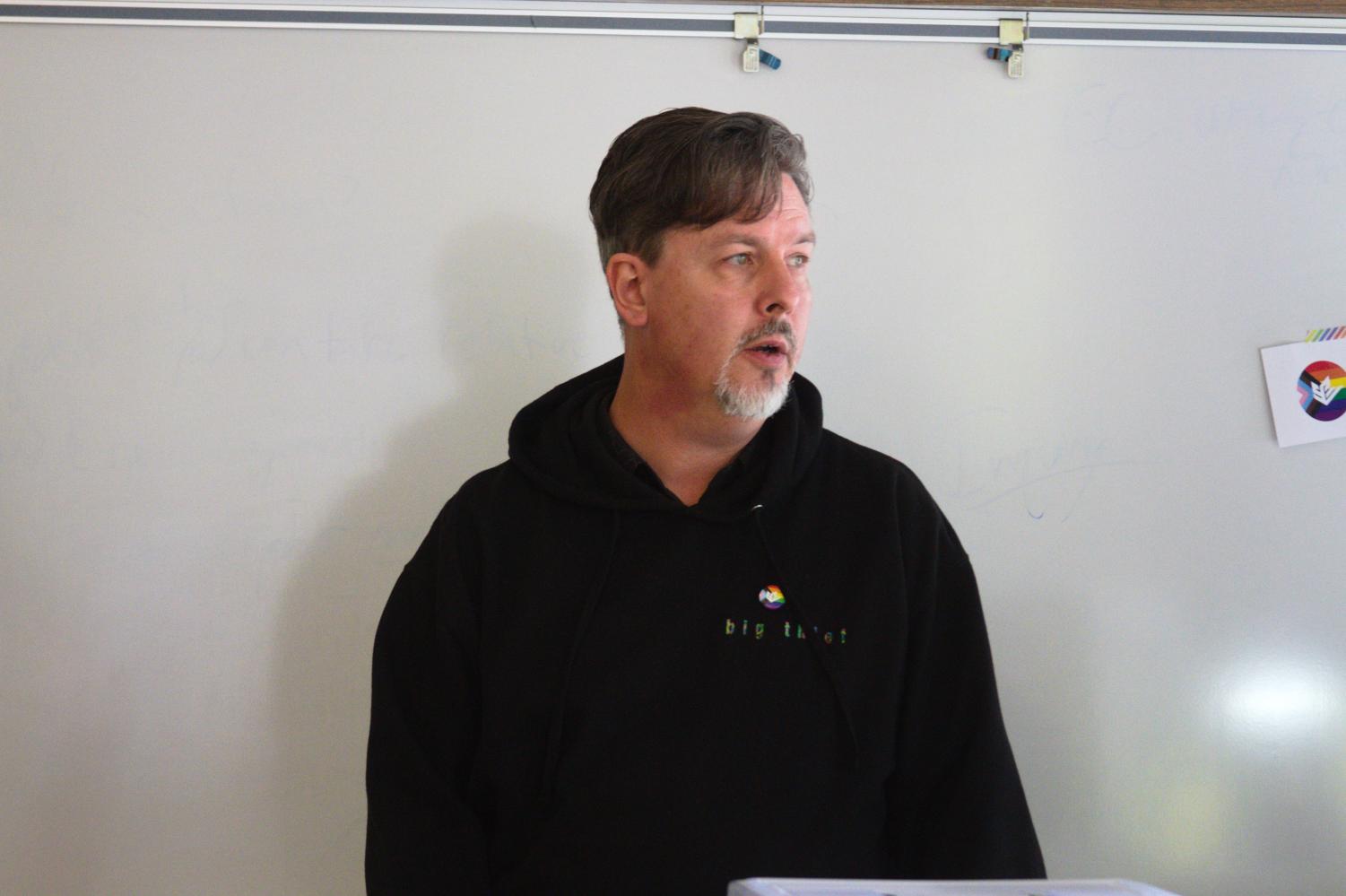To strengthen the things that remain
One professor’s reasoning on staying at Seattle Pacific University
October 6, 2022
Falcon editors have posed me a question: Why are you staying at Seattle Pacific during such turbulent times?
Good question. Many faculty, staff, and students who have recently walked away argue that SPU’s exclusionary hiring policy contradicts the Gospel the University claims as its guiding light. I respect their conviction. I share it.
But I feel called to stay. In three decades of SPU experience, I’ve watched the Holy Spirit transform this community (myself included) in ways both slow and sudden. Sure, we’ve seen that Seattle Times headline that SPU is “imploding,” and let’s face it: we cannot ignore failures of leadership, the severity of our financial crisis, or trends of decline in American higher education. But these challenges are uniting and bringing out the best in so many students, staff, and faculty. I see so much courage and grace under pressure.
My roots here run deep. My parents’ first date? Ping-pong in Moyer Hall. Their engagement? Dad proposed in the Alexander prayer chapel. I spent my freshman year in Moyer; my sophomore year in Hill Hall; and then lived in “married housing” through graduation. My writing professor introduced me to my wife of 26 years. After earning a BA in English literature, I worked as a communications specialist, first for the City of Seattle (nine years), and then with SPU’s University Communications team (thirteen years). I earned my MFA at SPU in 2016, and now I’m an SPU English professor.

(Josilyn Walker)
SPU’s distinct vision has inspired me from the start: If we seek the truth with fearless academic rigor in any field of study, we’ll discover greater measures of God’s wisdom and love. Contrary to other schools I’ve known, SPU does not indoctrinate culture warriors. Rather, we embody a vision Madeleine L’Engle described in Walking on Water: “We do not draw people to Christ by loudly discrediting what they believe, by telling them how wrong they are and how right we are, but by showing them a light that is so lovely that they want with all their hearts to know the source of it.”
The “light” of God’s work here goes on deepening my love for Jesus and dissolving my misconceptions. I arrived with an immature Christian faith and a judgmental spirit. But an SPU education loosened my legalism. Theology profs showed me that whenever Jesus was lectured to apply “the rules”—regarding the Sabbath, adultery, and people branded as “unclean”—he prioritized grace. I believed, but I needed help with unbelief.
I had a long way to go. I still do, and so does SPU. But I’ve seen God changing us both—slowly, but surely. In my undergrad years, students weren’t allowed to dance on campus. “Worldly” movies were heavily vetted for campus screenings. I remember a student being reprimanded for having a glass of wine—off campus. SPU even had rules against divorced faculty. (What happened to those?) And consider this: Our student body had a diversity rate lower than 10%, which allowed my fears, cultivated in a white-culture bubble, to fester. I’d been conditioned to suspect that Muslims were terrorists, Buddhists were “New Age” deceivers, and gay people were all predators. I worried that if SPU was too open, too gracious, we’d invite our own destruction.
But exclusion and legalism are “a slippery slope” as well. Why, I wonder, does SPU’s rule book remain specific about sexuality (based on cherry-picked Bible verses that are, by my lights, misinterpreted) when we’re given freedom on matters of much greater Biblical emphasis—like divorce, money, or how we treat refugees, immigrants, and the poor?
I now experience an extravagance of what the Scriptures call “the fruit of the Spirit”—love, joy, peace, patience, kindness, gentleness, self-control—in inclusive Christian communities. I have learned essential lessons about art and faith from a Catholic who took time to mentor me in SPU’s MFA program just days after he married his male partner. I am blessed each week at St. Paul’s Episcopal, which is full of SPU colleagues and alumni, by an Episcopalian rector whose pronouns are ”they/them”—and they studied theology at SPU! I have no reason to judge or exclude these children of god as educators, friends, confidants, and counselors. And I can only hope to model Christ for others as they do. Read Will Collier’s new biography of SPU’s beloved alumnus Pastor Eugene Peterson, A Burning in My Bones, and you’ll read about how Peterson’s own understanding on these issues began changing in his later years. (For clearer words on these complicated questions, Google “Walter Brueggemann”—a theologian revered at SPU—and “How to read the Bible on homosexuality.” That little essay rocks.)
And it’s more than just my fears and ignorance about the LGBTQIA+ community that are crumbling in the light of Christ’s grace. My students and I are both moved every year by the work of Malian director Abderhemanne Sissako; as he grieves the way militant fundamentalists are distorting the teachings and beauty of his own faith—Islam—young Christians in my classroom see reflections of division happening with their own evangelical churches. One student, a Muslim, confided in me with personal stories that transformed my understanding of the great animated film The Breadwinner. And the most important shelf in my home library is filled with books by the Trappist monk Thomas Merton who wisely encouraged Christians and Buddhists to discover their common ground, and to love one another.
I might never have learned to see through my fear-based rationalizations and my legalistic interpretations of a few out-of-context scriptures if it hadn’t been for the good guidance of SPU’s interdisciplinary theologians.
Institutions that dare call themselves “Christian” will always suffer blind spots and setbacks. By reckoning with our own, Seattle Pacific might yet become a shining example of what is possible when faith is cultivated in diversity and fearless intellectual inquiry. I hope to write a book one day about a flourishing university that the world knows as “Christian” by our love, not our laws. I pray it won’t be a tragic tale about how a select few dammed up rivers of grace and left our Gospel witness to wither.
But then again, as Wendell Berry reminds us, “The impeded stream is the one that sings.” In spite of everything, dear old SPU, I hear you singing. And I love you for it. To strengthen what good things remain, I’m staying.
The article was re-uploaded to the most updated version on Oct. 6 at 11 AM.


























































































